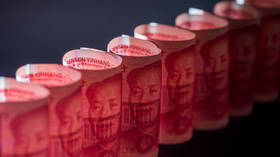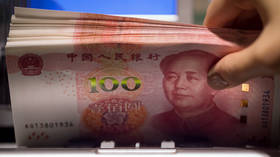Share of yuan in global payments rising – SWIFT

The Chinese yuan has risen to become the fourth most active currency for global payments by value in November 2023, the latest transaction data compiled by global financial messaging service SWIFT has shown.
According to the report issued this week, the renminbi was used in 4.61% of transactions, climbing from 3.60% in October and overtaking the Japanese yen’s share, which slipped to 3.41% from 3.91%.
Overall, the value of renminbi payments increased by 34.87% compared to October. In annual terms, the yuan’s global share has nearly doubled from November 2022, when it made up 2.37% of payments.
Meanwhile, the share of the world’s other top currencies declined during the month, with that of the US dollar sliding from 47.25% in October to 47.08%. The share of the euro fell from 23.36% to 22.95%, while the UK pound eased to 7.15% from 7.33%.
The growing share of the yuan in cross-border transactions reflects China’s trend of shifting away from the dollar, as well as Beijing’s efforts to promote the use of its national currency, the report said.
Economists point out that China has been pushing for payments in currencies other than dollars in trade with Russia, the Middle East and South America.
“It appears that other emerging countries are also using the yuan when importing Russian crude oil,” chief economist at Dai-ichi Life Research Institute Toru Nishihama was quoted as saying by Nikkei Asia.
Russian businessman Oleg Deripaska said this month that Western sanctions imposed on Moscow have boosted the Chinese currency. According to Deripaska, the volumes of cross-border trade payments in renminbi will exceed those made in euro within just four years.
Since the imposition of sanctions in 2022, Russia and its trading partners among developing nations have intensified efforts to reduce the use of the Western financial system and replace the US dollar and euro with national currencies in trade settlements, including the yuan, Indian rupees and Emirati dirhams.
For more stories on economy & finance visit RT's business section













